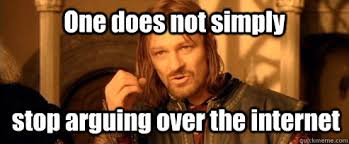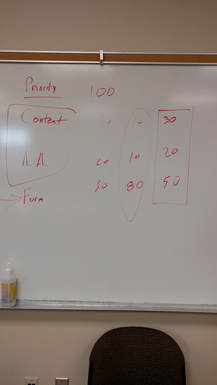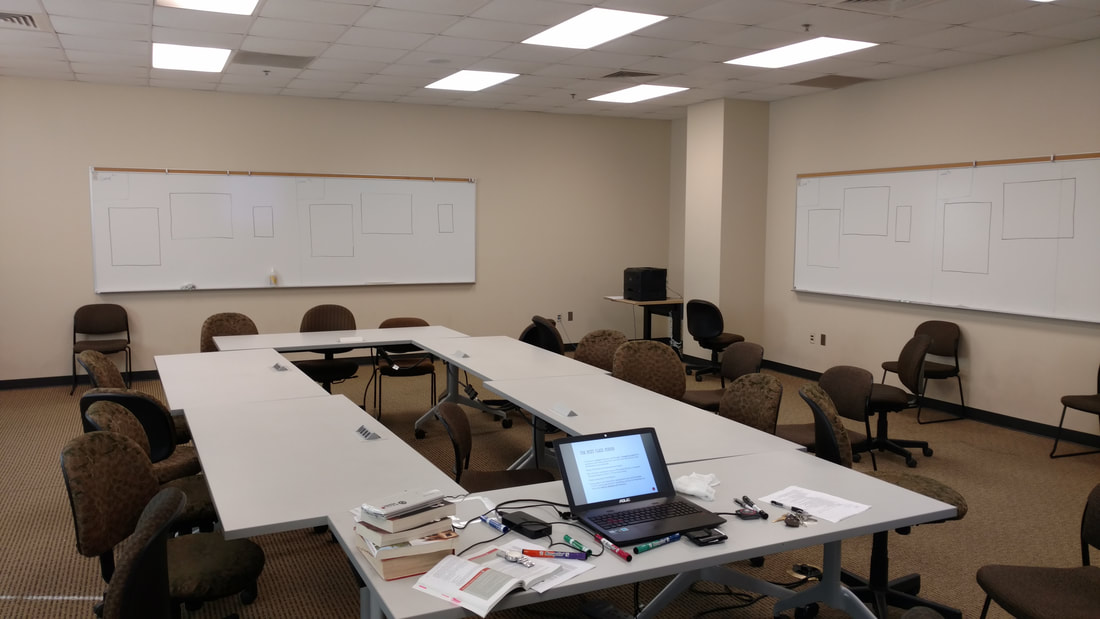
There's been a lot of buzz on the internets--in the email digests I find in my inbox, in offline conversations, and of course most ironically on my social media feeds--about how bad social media is for discourse, for us socially or psychologically.
These stories express a variety of concerns but most have to do with the way the apps we use most frequently in some way "change our brains." These concerns are expressed with a varied degree of sophistication. The Economist recently made the connection between neuroscience and the "addictiveness" of social media. Some of the anxiety has centered on the specific impact of smartphones' and social media's impact on teenage neurological and social development. Dr. Jean Twenge's article in the Atlantic last fall about this very issue is emblematic of the worry about a developing "mental health crisis" among "today's" teens.
But there are also shorter pieces that have circulated as well, more "clickbaity" type articles like the one I received in an email newsletter this week and that finally prompted me to write this particular post. In "You Should Never, Ever Argue With Anyone on Facebook, According to Science," Minda Zetlin draws attention to the fact that "New research shows how we interact makes a huge difference." Zetlin summarizes the results of a "new experiment by UC Berkeley and University of Chicago researchers." 300 participants who listened or watched arguments they disagreed with had "a distinct difference" in reaction from those who read the same as text. The willingness to "dismiss the speaker as uniformed or heartless" diminished if you listened or watched versus read what they said.
Zetlin quotes one researcher who said the experiment was inspired by one of the team having the experience of reading a speech excerpt that was printed in a newspaper from a politician with whom he strongly disagreed." By contrast: "The next week, he heard the exact same speech clip playing on a radio station. He was shocked by how different his reaction was toward the politician when he read the excerpt compared to when he heard it."
Zetlin's conclusion is that we are "using the wrong medium" to argue and should instead visit with one another to air our disagreements, talk over the phone, or watch videos about issues instead of just reading the text.
Zetlin has zeroed in on the fact that social media's mode of interaction is hamstrung by the fact it happens via text. In one respect there is a distance between a person's written and spoken words. As a rhetorician I am aware that pathos, emotive appeal of an argument, is a crucial part of connecting with our audience. As a specialist I am interested in how digitally mediated communication impacts intercultural interactions specifically. I am aware of how easy it is to reduce someone and their arguments to a stereotype when "distanced" from them through technology.
At the same time, this argument does not take in to account the potentially negative use of one's embodied presence to persuade. All respect to brother Godwin, but if you replaced "a politician with whom he strongly disagreed" with "Hitler" in the example above, the problem becomes immediately obvious. If one IS persuaded by someone in person, perhaps seeing their words separate from their embodied connection building is a positive, providing insight easily deflected in person. The one is not necessarily "better" or "more real" than the other.
To the narrow question of whether one should argue online or not, a not insubstantial percentage (by no means all) of people I've noted expressing frustration, are people with authority of some kind who sense that they've lost control of ideas, thoughts, and words, when they go online. Which, to be clear, they have. But it is precisely this distance that has the potential to productively challenge our thoughts, ideas, and arguments. It also allows people without power the space to say what cannot be said in the immediate presence of the powerful.
That arguments have to be typed on social media and in some cases limit the amount you can reasonably say, requires you to externalize and edit your thoughts BEFORE you actually "send" them--something that cannot be done in person. Social media is often castigated for requiring very little of people to respond. But even if you're firing something off--you still have to "say it outloud" before you send it.
People's physical presence is a game changer. And in one respect the advice that one think something like "is this something you would say to the person if they were in front of you" before you hit "send" or "reply" is good advice. But there's a subtle sanctimoniousness here that erases the role of power in relationships. In person strong authoritarian or even just charismatic personalities rely precisely on the dynamic created by physical presence to keep people from responding or to go along with them in ways they otherwise wouldn't. And in my own experience, this has been a very bad thing.
Social media, especially Twitter, has proven very detrimental for people of color, women, people who are neuro-atypical, introverted personality types, etc. But it has also been a place for engagement where people who have been shut down in person, in the public, embodied spaces idealized by Zetlin, Twenge, and (whoever it is that writes for) The Economist. In fact, to the extent those social media spaces have been bad for oppressed and marginalized groups, it is precisely because they reinscribe the same dynamics those people experience "in person" in the intimate space of their phone or mobile device.
Regardless, putting arguments in written actually affords a certain distance on those arguments that has the potential to be beneficial. Set within the background network of information access that allows us to double check claims, weigh counter arguments, this can be very good. That we tend not to do this is not social media's fault.
We may not be very good at arguing online. I wasn't necessarily. But it allowed me to express a side of me that remained repressed in a negative way that physical presence had actually nurtured. It also allowed me to get distance on arguments from people who, in person, seemed like such genuine, nice people and indeed were. But in the stark light of textualization, a cold truth about elements of their argument cast their in-person arguments not as something worthy to share, but as condescending, irrational, fearful, and cruel. Their embodied presence made this difficult to see.
These arguments destroyed relationships--deep, long-term relationships. As I said, it "ruined" my life. My life as I knew it before 2012 or so simply does not exist anymore and could not exist again. But in the distance created by the medium I was able to see many were not relationships that should be maintained, built on arguments I should not embrace. I do not want that life back.
We are very much in the infancy of digitally mediated argumentation. I think we need to be very careful with and critical of the technologies we use. Kids and teens especially will need to develop not necessarily "outside" of technology, but as critical participants--able to get distance on the tools themselves. [And, while I appreciate Dr. Twenge's concern for teens and their phones, Baby Boomers recently elected an impulsive, lonely, phone user from their own cohort, whose embodied relational presence has not made things better for a lot of people...]
The point is: critical engagement is something entirely different than "never, ever" doing a thing. Don't argue online if you don't like it or aren't any good at it. I don't really anymore. But don't discourage people for engaging in ways they may not be able to in the way you think they ought. And certainly don't deploy a single study as "Science" in defense of that argument.
Small Postscript: Seriously. Y'all. One study (even of 300 people from UC Berkeley/U. of Chicago!) does not constitute "Science." It is a data point. One that absolutely needs to be taken into consideration. But please, I understand we are all desperately casting about for credible foundations for our arguments and trying to get them past the noise, but you help neither yourself or "Science" by wielding it like a club (a club you can't even be bothered to provide a link to...)



 RSS Feed
RSS Feed